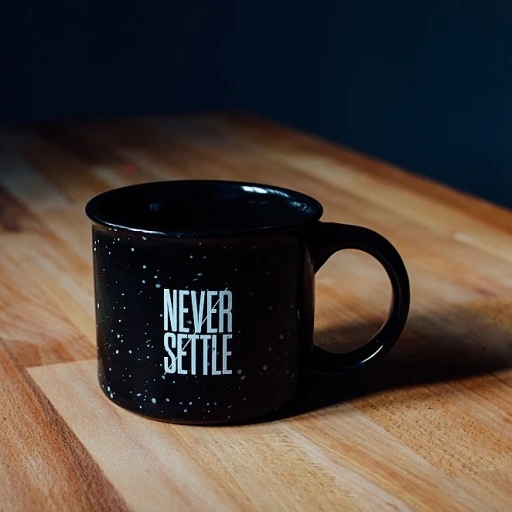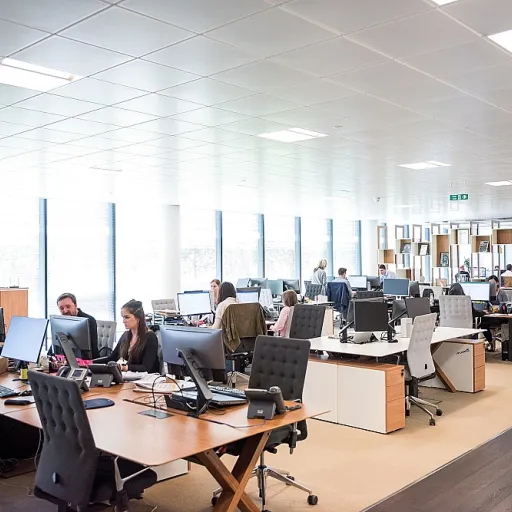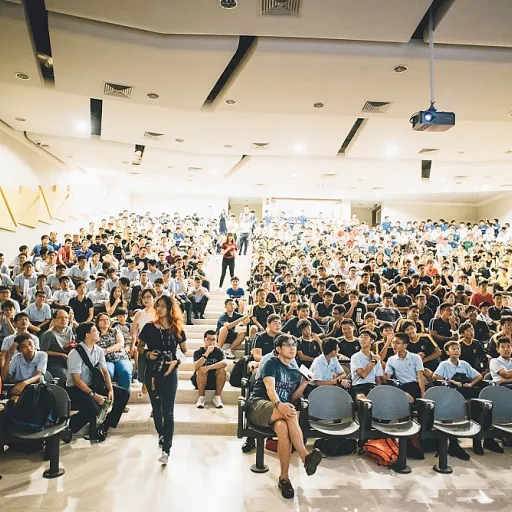
Understanding the Purpose of Second Interviews
Decoding the Intent Behind the Second Interview
The second round interview is a pivotal moment in the hiring process, often serving as a bridge between initial impressions and a final decision. Understanding its purpose is crucial for candidates aiming to make a lasting impact. This stage is not just about reiterating your resume; it's about delving deeper into your fit for the company and the role.
Unlike the first interview, which might focus on your general qualifications and experience, the second interview often emphasizes your compatibility with the company culture and your potential to contribute to the team. Interviewers will likely explore your career goals, time management skills, and how you handle specific job-related scenarios. This is where your ability to answer questions with strategic depth becomes key.
Why Companies Conduct Second Interviews
Companies use the second round to assess how well you align with their values and work environment. They might ask questions that test your problem-solving abilities or how you approach challenges. This round is also an opportunity for the hiring manager to gauge your enthusiasm for the role and the company. They want to see if you can bring something unique to the table that aligns with their current needs.
Moreover, the second interview is a chance for you to demonstrate your understanding of the company and its goals. This is where you can shine by showing that you've done your homework and are genuinely interested in contributing to their success. For more insights on navigating complex interview scenarios, you might find this resource on challenging employee types helpful.
As you prepare, focus on the common themes that might arise in this round. These can include behavioral questions, which we'll explore further, and unexpected questions that test your adaptability. By understanding the purpose of the second interview, you can better prepare your answers and present yourself as the best candidate for the job.
Common Themes in Second Interview Questions
Delving Deeper: Key Questions to Anticipate in Your Second Interview
During the second round interview, you can expect questions that peel back layers of your previous answers. The purpose is to gain more insight into your fit within the company culture and your potential contributions.- Job-Specific Questions: These focus on the skills and experiences tied to the job description. Interviewers might ask for specific examples of past projects to assess your technical and soft skills.
- Behavioral Questions: Common in second rounds, these questions aim to understand how you've handled situations in your current job. Your answer provides an example of your problem-solving skills and decision-making process.
- Career Goals: Be prepared to discuss long-term career aspirations. This helps the hiring manager evaluate whether your goals align with the company's trajectory.
- Company and Team Dynamics: Expect questions related to how you might fit within the team and adapt to the company’s work environment. Understanding this is crucial for both the interviewer and interviewee.
Preparing for Behavioral Questions
Getting Ready for Behavioral Queries
The second job interview is often more focused on understanding how your past experiences and skills align with the company's needs and culture. This is where behavioral questions come into play. These questions help interviewers assess how you’ve handled situations at your current job or in past roles, giving them insight into your potential future performance. Behavioral questions are a common second round hurdle, and here are some strategies to help you tackle them effectively:- Understand the STAR Method: The STAR (Situation, Task, Action, Result) method is a classic approach to structuring your responses. Begin by describing a specific Situation and the Task you needed to accomplish. Then, explain the Action you took and conclude with the Result. This method helps you deliver clear and concise answers.
- Reflect on Past Experiences: Before the interview, spend time reflecting on past work situations that relate to the job description. Think about your key achievements, challenges you’ve faced, and how you’ve overcome them. These will provide you with a pool of examples to draw from when questions arise.
- Showcase Your Skills: Focus on highlighting the skills mentioned in the job description. Whether it's time management, problem-solving, or teamwork, tailor your examples to demonstrate these abilities in action during your second interview.
- Know the Company Culture: Aligning your answers with the company culture is crucial. Researching what makes a workplace truly intelligent can give you the insights needed to weave cultural fit into your responses.
Crafting Strategic Responses
Developing Impactful Responses for Success
Crafting strategic responses in a second interview is pivotal to showcasing your suitability for the role. This round is not just about reiterating your enthusiasm for the company or position; it is a chance to align your skills and experiences with what the interviewers are seeking. When formulating your answers, consider these tips:- Focus on Alignment: Match your skills and experiences with the job description. Highlight how your current job and career goals align with the company's objectives. This approach helps solidify your fit for the position.
- Use Specific Examples: Instead of generic responses, provide concrete examples from your work history. Whether discussing your time management skills or how you handled a challenging project, specific instances give weight to your answers and demonstrate real-world application.
- Address Common Second Round Topics: Prepare for potential questions about company culture and team dynamics. Interviewers may probe deeper into how you will integrate into their existing team. Illustrate your adaptability and willingness to contribute positively.
- Showcase Problem-Solving: Companies value candidates who can think critically and navigate unexpected scenarios. Prepare to answer questions that target your problem-solving skills, using compelling examples to highlight your ability to adapt and respond effectively under pressure.
- Be Concise: While it’s important to provide comprehensive answers, make sure to stay focused and succinct. This not only respects the interviewers’ time but also keeps your responses impactful and memorable.
Handling Unexpected Questions
Skillfully Navigating Unanticipated Queries
Facing unexpected questions in the second round interview can throw anyone off balance. Yet, such moments offer a chance to showcase your adaptability and critical thinking. The key is to remain composed and not to rush your response. One common method interviewers employ is to challenge candidates with seemingly unrelated questions. These questions often assess how well you can think on your feet and provide insight into your thought process. While you may not anticipate every question asked, there are strategies to handle them effectively.- Pause and Reflect: Taking a moment to consider your response isn’t just acceptable; it’s advisable. This pause not only allows you to gather your thoughts but also demonstrates your ability to manage time effectively under pressure.
- Relate to Experience: Whenever possible, link your answer back to tangible experiences from your current job or previous roles. This approach grounds your response in reality and reinforces your suitability based on real-world examples.
- Clarify When Needed: If a question seems vague or puzzling, don’t hesitate to seek clarification. Asking a follow-up question such as, "Could you please elaborate on that?" shows your intent to provide a thoughtful and relevant answer.
Questions to Ask Your Interviewer
Engaging Your Interviewer with Insightful Questions
As you navigate the second round interview, it's crucial to remember that this is not just an opportunity for the company to evaluate you, but also for you to assess if this is the right place for your career goals. Asking thoughtful questions can help you gain deeper insights into the company culture, the role, and your potential future with the organization.- What are the key challenges facing the team right now? This question helps you understand the current job landscape and the specific issues you might be tackling if you join. It also shows your interest in contributing to the team’s success.
- How do you measure success in this role? By asking this, you can align your skills and time management strategies with the company’s expectations, ensuring that you’re on the same page regarding performance metrics.
- Can you describe the company culture? Understanding the company culture is vital for determining if you’ll thrive in the work environment. This question can reveal insights into the day-to-day work life and the company’s values.
- What are the next steps in the hiring process? This is a common second interview question that shows your eagerness and helps you manage your expectations regarding the timeline and any additional rounds.
- How does this role contribute to the company’s overall goals? This question demonstrates your interest in the bigger picture and how your work will impact the company’s success.













